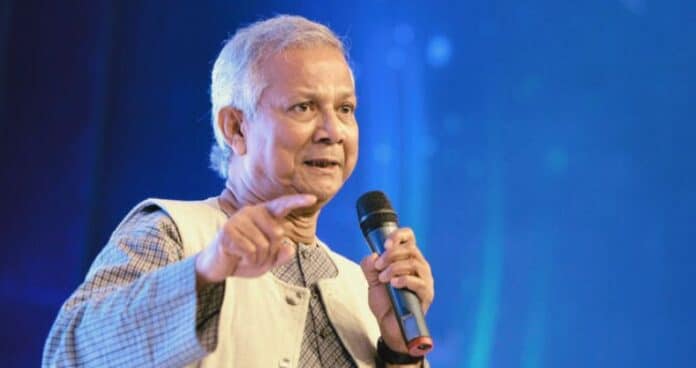Nobel Peace Prize laureate and Bangladeshi microfinance pioneer, Muhammad Yunus, has been sentenced to six months in jail. According to reports, he was convicted of violating labor laws. This development has struck the nation like a rogue bolt of lightning. It now stands confused between a sense of obligation to its hero and a verdict to imprison him.
Yunus’s legacy is etched in the faces of millions lifted from poverty. His brainchild, Grameen Bank, empowered women with microloans and turned their dreams of a better life into tangible realities. Yet, the courtroom painted a stark picture, accusing him of failing to establish a worker’s welfare fund.
A Technical Oversight or a Sinister Ploy?
Despite being a Nobel prize winner, this wasn’t about Yunus’s past achievements. Many argued that it was about accountability and ensuring no one, not even a Nobel laureate, stood above the law. The sentence, though harsh, was allegedly due to neglecting regulations crucial for worker well-being.
However, Yunus and his supporters saw it as political vendetta. Yunus is a huge critic of the Bangladeshi government led by Prime Minister Hasina Sheikh. Suspiciously, the timing of this verdict coincided with growing tension between him and the PM, amidst the upcoming general elections.
Analysts see it as a long-simmering power struggle now boiling over. Several prominent social media figures expressed support for Yunus, viewing him as a victim of political persecution. There is also a concern about Bangladeshi democracy and the integrity of the upcoming polls.
From Best Buddies to Bitter Enemies
The political landscape of Bangladesh is woven with intricate threads, especially the one binding Muhammmad Yunus and Sheikh Hasina. Both once stood as pillars of Bangladeshi progress. Grameen Bank empowering millions through microloans, perfectly aligned with Hasina’s vision of development through social justice. This shared commitment fostered a public camaraderie, with Hasina even crediting Yunus as a source of inspiration.
However, as their individual paths diverged, so did their relationship. Yunus’s growing influence, his outspoken criticism of government policies, and his perceived political ambitions clashed with Hasina’s centralized power. The friction intensified when Yunus launched Nagorik Oikya, a new political party, seen by many as a direct challenge to Hasina’s dominance.
Accusations started to run rampant. The government questioned Grameen Bank’s financial practices and Yunus countered with claims of hate campaign. Ultimately, the public found their allegiance wavering between the champion of the poor and the architect of economic stability.
The tipping point came in 2024 with Yunus’s controversial sentencing for violating labor laws. While technically legal, many saw it as a blatant attempt to silence dissent. The international community reacted with alarm, with world leaders and fellow Nobel laureates rallying to Yunus’s defense. The episode not only widened the rift between the two figures but also plunged Bangladesh’s image onto the global stage of political intrigue.
A Nation Caught in the Crossfire
Over 170 leaders and fellow laureates all over the world demanded a halt to the proceedings. The global spotlight cast a harsh glare on Bangladesh, forcing the nation to confront a stark paradox: Was this justice or a crushing blow to a champion of the disadvantaged? The legal battle continued, but the real struggle resided in the hearts and minds of Bangladeshis. They grappled with reconciling their gratitude for Yunus’s contributions with a gnawing sense of injustice.
The courtroom drama exposed more than a legal dispute. It illuminated fault lines in Bangladesh’s values, the blurred lines between respect and responsibility, and the eternal conflict between personal glory and collective good. Under the shadow of Yunus’s Nobel Prize, Bangladesh searched its conscience, navigating whispers of doubt and cries for understanding. The world watched, holding its breath, for a resolution that might bridge the chasm and illuminate a path forward, not just for Bangladesh, but for any nation wrestling with the complexities of hero worship and human fallibility.


